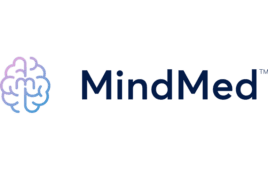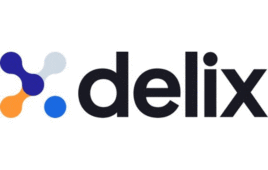
[Image courtesy of Wikimedia Commons]
For those who don’t respond to the first treatment, however, the likelihood that a new antidepressant will help tends to go down the more therapies a patient tries.
The situation can heighten negative emotions in depressed patients. For example, about three out of ten patients with treatment-resistant depression experience feelings of frustration, hopelessness and anxiety, according to a study in BMC Psychiatry.
The antidepressant landscape, however, is diversifying. In the second half of 2022, two notable medications won FDA approval for MDD, while another could win FDA approval in 2023.
- In August, FDA approved Auvelity from Axsome Therapeutics (Nasdaq:AXSM) for major depressive disorder. Auvelity (dextromethorphan HBr-bupropion HCl) extended-release tablets are marketed as a rapid-acting option for treating major depressive disorder (MDD) in adults. Although dextromethorphan and bupropion are widely used drugs individually, Auvelity is protected by 93 U.S. patents.
- In December, Biogen and Sage Therapeutics filed a rolling submission for FDA approval for zuranolone for MDD and postpartum depression. Zuranolone is unique in that it is a neuroactive steroid. While Sage has commercialized another neuroactive steroid known as brexanolone for postpartum depression, it is an IV drug. If approved, Zuranolne would diversify the antidepressant landscape as it would be prescribed as a 14-day oral short-term treatment for MDD and PPD. Many patients on antidepressants take medicine daily for several months and often for multiple years.
- In December, FDA approved Vraylar (cariprazine) as an adjunctive treatment for MDD. The drug is from AbbVie and Gedeon Richter. Cariprazine is a novel atypical antipsychotic drug (APD) that is a partial agonist at the dopamine D2 and D3 receptors and serotonin 5-HT1A receptors. It is also a 5-HT2B antagonist.
Other ways the antidepressant landscape could shift
Ketamine is gaining popularity for depression, but its potential to gain widespread traction remains unclear. Spravato (esketamine) from Johnson & Johnson won FDA approval for depression in 2019. However, the approval is limited to patients with treatment-resistant depression. In addition, patients on the drug also face logistical challenges given a program designed to manage known or potential risks associated with a drug. The program, known as Spravato REMS, requires patients taking the esketamine to be monitored in a clinical setting for at least two hours after each dose is administered.
In recent years, there has been a surge in interest in the off-label use of ketamine — generally provided as an IV infusion but sometimes subcutaneously or orally. There has been an explosion in ketamine clinics in the U.S. Programs such as Mindbloom, which offer oral ketamine via telehealth, have also gained traction.
Ketamine infusions for depression remain expensive and not typically reimbursed by insurance.
It is also possible that ketamine will face growing scrutiny in the coming months. The companies that offer it via telehealth do so based on relaxed restrictions made possible by the COVID-19 public health emergency (PHE). The federal government could let the PHE lapse in 2023, forcing online ketamine companies to change their business model. The startup Bexson Biomedical is doing preclinical studies on ketamine for mental health conditions.
In addition, several companies aim to develop psychedelics to treat depression and anxiety. Although several of these players made clinical progress in 2022, many of these companies have experienced significant reductions in stock valuations. COMPASS Pathways (Nasdaq:CMPS), for instance, saw its stock price fall 64% in 2022, while ATAI Life Sciences’ share price dropped 67%. Cybin and Numinus Wellness saw their stock valuations drop by more than 70%. In addition, MindMed was delisted from the Nasdaq. Its stock has fallen more than 90% this year.
There are other efforts to develop antidepressants as well. In December, for instance, FDA granted Fast Track designation to a neuroactive-steroid–based nasal spray from Vistagen for MDD. The developer recently agreed to acquire privately-held Pherin Pharmaceuticals, which had initially developed the nasal spray.
Filed Under: Psychiatric/psychotropic drugs





Tell Us What You Think!
You must be logged in to post a comment.